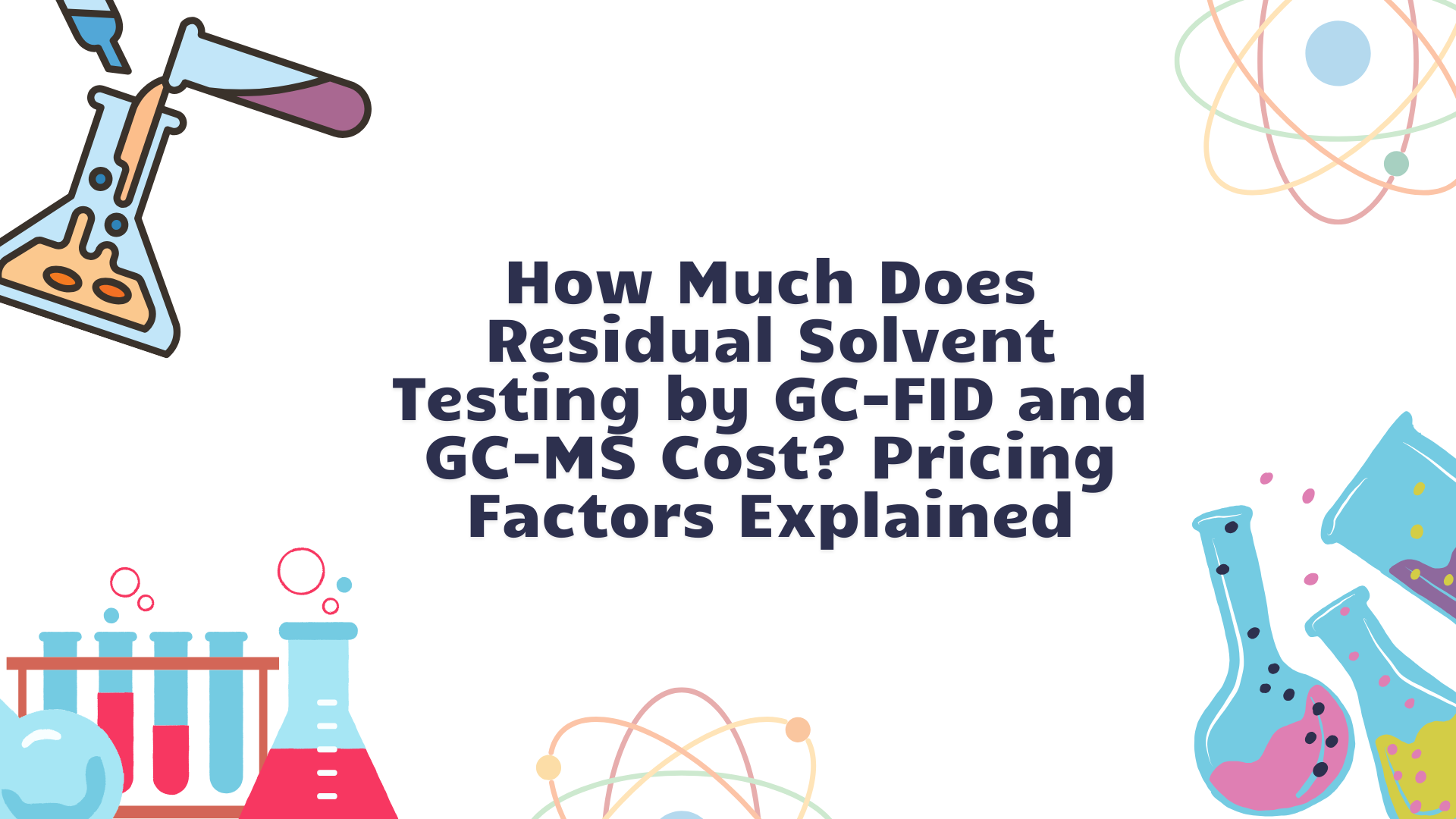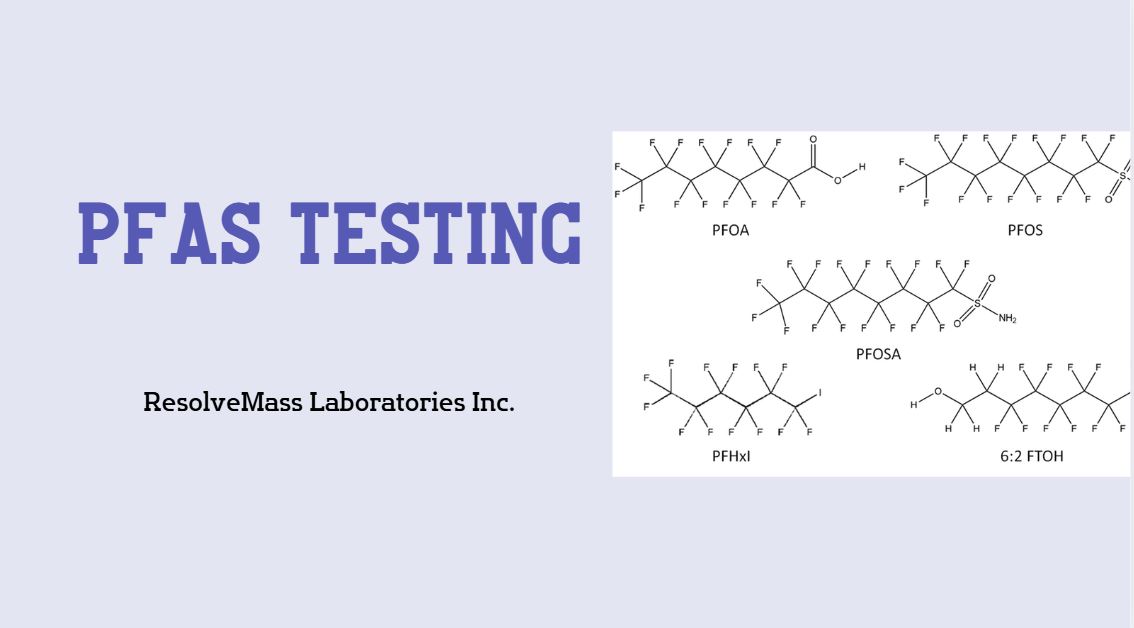Summary:
- Residual Solvent Testing Cost depends on multiple factors including testing methods, solvent classes, sample type, and regulatory requirements.
- GC-FID and GC-MS are the gold standard methods for accurate residual solvent analysis.
- Testing cost varies by solvent complexity, sample matrix, volume, and whether identification or quantification is required.
- Compliance with USP <467>, FDA, and Health Canada guidelines influences pricing.
- ResolveMass Laboratories Inc. provides experienced, authorized, and trusted testing services compliant with North American regulations.
- Understanding pricing factors helps customers budget effectively and comply with pharma and cannabis industry standards.
Introduction: What is Residual Solvent Testing Cost?
Residual Solvent Testing Cost is an important factor for manufacturers in the pharmaceutical, cannabis, and specialty chemical industries. These tests are designed to identify leftover volatile solvents that may remain in products after the production process. Such solvents can pose health risks if not properly monitored, which is why accurate testing is a regulatory requirement across North America.
Laboratories commonly use advanced techniques like GC-FID (Gas Chromatography with Flame Ionization Detection) and GC-MS (Gas Chromatography–Mass Spectrometry) to deliver reliable results. While GC-FID is often chosen for cost-effective quantification, GC-MS offers higher sensitivity and molecular confirmation. At ResolveMass Laboratories Inc., both methods are performed in strict compliance with USP <467>, FDA, and Health Canada guidelines to ensure safety, accuracy, and trust.
For an overview of testing methods, you can visit Residual Solvent Testing Methods.
What Factors Influence Residual Solvent Testing Cost?
The overall cost of residual solvent testing depends on several interconnected elements –
| Factor | Explanation |
|---|---|
| Testing Method | GC-FID is generally less costly and suitable for quantification; GC-MS adds molecular identification requiring more resources. |
| Solvent Class | Class 1 solvents (highly toxic) and Class 2 solvents require stricter, often more costly analysis than Class 3. |
| Sample Type and Complexity | Complex matrices like cannabis oils need more sensitive and elaborate testing, increasing cost. |
| Number of Solvents Tested | Testing for multiple solvents raises cost; batch testing may reduce per-sample cost. |
| Regulatory Requirements | Compliance with USP <467>, FDA, Health Canada influences method validation and pricing. |
| Turnaround Time | Expedited testing options may come with premium pricing. |
Understanding residual solvent testing in Canada regulatory guidelines and differences in compliance requirements can also impact pricing decisions..
Residual Solvent Testing Cost: GC-FID vs. GC-MS
Comparing GC-FID and GC-MS Methods
| Method | Description | Cost Range | Use Case |
|---|---|---|---|
| GC-FID | Quantitative method detecting solvents by flame ionization | Moderate Cost | Suitable for routine quantification of residual solvents where identification certainty is less critical. |
| GC-MS | Combines chromatography with mass spectrometry providing compound identification and quantification | Higher Cost | Used when solvent identification alongside quantification is needed, especially with complex samples or regulatory scrutiny. |
While GC-FID generally offers a more budget-friendly option, GC-MS testing can be significantly more expensive due to the advanced instrumentation and expertise required. The choice between the two methods should be based on regulatory obligations, product type, and the level of certainty required in the results. Learn more about how residual solvent testing aligns with USP <467> and FDA compliance on our page about Residual Solvent Testing in United States USP & FDA Compliance.
Why Partner with ResolveMass Laboratories?
ResolveMass Laboratories provides trusted and compliant testing services across North America. Our laboratory is equipped with advanced GC-FID and GC-MS systems, supported by headspace sampling and validated methods. Each analysis is performed under strict ISO and USP <467> protocols to ensure the highest level of accuracy.
Clients benefit from transparent pricing, fast turnaround times, and personalized consultation for their unique testing needs. By choosing ResolveMass Laboratories, manufacturers can reduce compliance risks, maintain market credibility, and ensure that their products meet international safety standards.
Visit our detailed guide on Residual Solvent Analysis in US Pharma Class 1, 2, 3 Guide.
Tips to Optimize Residual Solvent Testing Cost
Companies can take proactive steps to manage and reduce their testing expenses without compromising quality. Consolidating multiple samples for batch testing can significantly lower per-unit costs. Selecting the most appropriate testing method—GC-FID for standard quantification or GC-MS for advanced molecular confirmation—helps align expenses with actual regulatory needs.
It is also important to stay informed about evolving regulatory requirements. Frequent updates from the FDA, Health Canada, or USP <467> may impact testing protocols and cost structures. Working closely with accredited laboratories like ResolveMass ensures that businesses remain compliant while avoiding unnecessary re-analysis or costly delays.
For detailed regulatory guidance, you can also check out the USP 467 Residual Solvents Guide for Pharma Manufacturers.
Conclusion: Residual Solvent Testing Cost Insights
Gaining a clear understanding of Residual Solvent Testing Cost using GC-FID and GC-MS is vital for companies in pharmaceuticals, cannabis, and specialty chemicals. The final price can vary depending on several factors, including the chosen testing method, solvent classification, sample type, and the level of regulatory documentation required. Recognizing these elements allows manufacturers to plan more effectively while maintaining compliance and consumer safety.
At ResolveMass Laboratories, we combine years of expertise with advanced testing technologies to deliver reliable and fully compliant results. Every analysis is performed in alignment with USP <467>, FDA, and Health Canada guidelines, ensuring accuracy and peace of mind. With transparent pricing and customized service options, ResolveMass provides clients with a trusted partner for meeting strict industry standards while managing testing costs efficiently.
For comprehensive details on residual solvent testing cost and regulatory guidelines, explore more on Residual Solvent Testing .
Contact ResolveMass today –
Frequently Asked Questions (FAQs)
The cost of testing can vary depending on the complexity of the sample and the number of solvents being analyzed. GC-FID testing is usually more affordable, often ranging from a few hundred dollars to about a thousand per batch. GC-MS testing is more advanced and can cost 1.5 to 2 times higher due to its ability to provide molecular confirmation.
GC-FID is valued for its speed, cost-effectiveness, and accuracy in measuring solvent concentrations. GC-MS, on the other hand, offers both quantification and molecular identification, making it essential when regulatory submissions or complex formulations require detailed confirmation of results.
Testing is recommended for every production batch to ensure consistency and safety. It should also be repeated whenever there are changes in raw materials or manufacturing processes, as even small adjustments can affect solvent residues and overall compliance.
Residual solvents are grouped into three categories. Class 1 solvents are highly toxic and must be carefully monitored, Class 2 solvents have moderate toxicity, and Class 3 solvents pose low risk. USP <467> defines the acceptable limits for each class to protect consumer safety.
Complex products such as cannabis extracts, oils, or specialized drug formulations often require additional preparation and longer analysis. These factors can increase both testing time and cost, especially when GC-MS is needed to achieve the required sensitivity.
Both countries recognize USP <467> as the primary guideline, but Health Canada and the FDA apply jurisdiction-specific requirements. These differences can influence the testing process, documentation needs, and ultimately the overall cost of analysis
Yes, faster turnaround times usually involve premium fees. Laboratories may need to prioritize resources or schedule additional staff, which increases the price for same-day or rush testing services.
Testing more solvents or covering multiple solvent classes naturally requires more analytical work. Each additional solvent adds to the testing time, instrumentation use, and reporting, which can increase the total cost of analysis.
Get in touch with us
References
- B’Hymer, C. (2003). Residual solvent testing: A review of gas-chromatographic and alternative techniques. Pharmaceutical Research, 20(3), 337–344. Retrieved from https://pubmed.ncbi.nlm.nih.gov/12669951/
- United States Pharmacopeial Convention. (n.d.). General Chapter 〈467〉: Residual Solvents [PDF]. Retrieved from https://www.uspnf.com/sites/default/files/usp_pdf/EN/USPNF/generalChapter467Current.pdf


